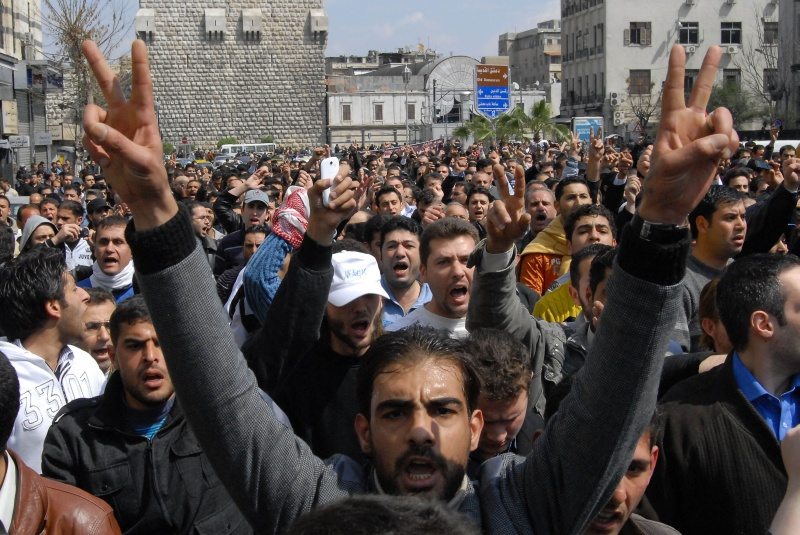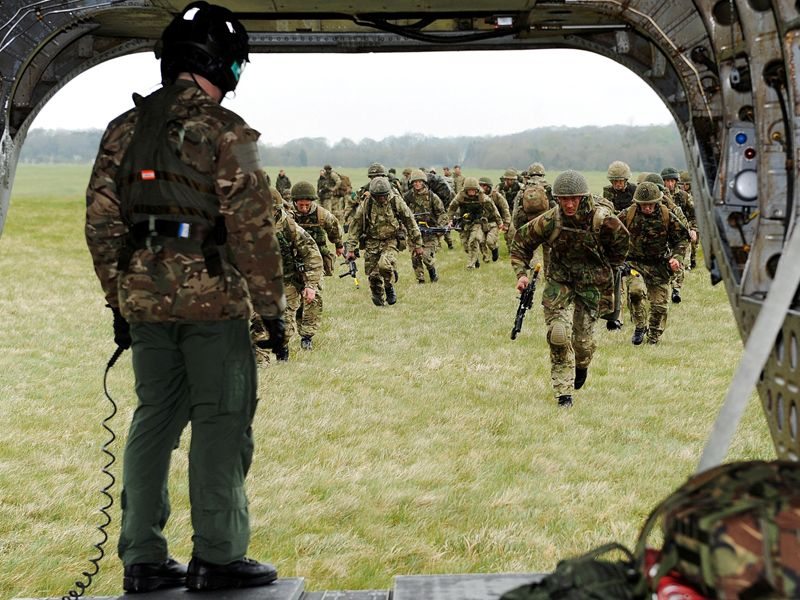Rebels claimed a bomb attack which struck at the heart of Syria’s senior command, killing at least three of President Bashar al-Assad’s top brass and warned of more carnage to come.
The explosion, blamed on a bodyguard attending a meeting of security chiefs at their Damascus headquarters, prompted the White House to say Assad was “losing control” of Syria.
The attack, the first to target Assad’s inner core since a 16-month uprising erupted, came ahead of a showdown between the West and Russia and China over a draft UN resolution calling for sanctions, which was pushed back till Thursday.
UN chief Ban Ki-moon urged the divided Security Council to “shoulder its responsibility and take collective and effective action” over the conflict, which activists say has killed more than 17,000 people since March last year.
Wednesday’s bombing killed Defence Minister General Daoud Rajha, Assad’s brother-in-law Assef Shawkat and General Hassan Turkmani, head of the regime’s crisis cell on the uprising, state media said.
Among those wounded were Interior Minister Mohammed al-Shaar and General Hisham Ikhtiyar, head of National Security.
Conflicting accounts have emerged of who carried out the attack and how.
It was claimed by the rebel Free Syrian Army as its fighters battled Assad loyalists across Damascus for a fourth straight day, although another group, the Brigade of Islam, also said it was responsible.
The FSA command “announces the good news of the outstanding operation this morning that targeted the National Security headquarters and the killing” of the officials “responsible for barbaric massacres,” it said.
The rebels said the attack, part of Operation Damascus Volcano launched on Monday, “is the first in a series… aimed at bringing down Assad and the pillars and symbols of the regime, whether civilian or military.”
State media initially said it was a “suicide bombing” before apparently retracting and calling it a “terrorist attack.”
A Syrian security official told AFP the bombing was carried out by a bodyguard of one of the ministers or security chiefs at the meeting. The attacker had been wearing an explosives belt.
Another official said the blast was caused by a briefcase packed with explosives that a bodyguard left in the meeting room and detonated from afar via remote control.
The FSA said in a YouTube video that six people died including Interior Minister Shaar, General Hisham al-Bikhtyar, head of the national security branch, and Mohammed Saeed al-Khitan, identified as “deputy local trustee.”
Rajha, a Christian, was the highest-ranking officer in the army under Assad’s overall command.
The Syrian Observatory for Human Rights called Shawkat’s death “a severe blow to the Syrian regime since he played the main role in operations by regular forces to crush the revolution,” notably in flashpoint Homs province.
State media said Assad appointed General Fahd al-Freij as new defence minister, and he promptly appeared on television vowing to “hunt down criminal gangs and cut off the hand of those who threaten security.”
The Syrian army said the “terrorist act increases the armed forces’ determination to cleanse the country of terrorist groups.”
The blast came a day after the FSA — comprising army defectors and armed civilians — declared its battle to “liberate” Damascus had begun and warned the regime to “expect surprises.”
Columns of black smoke rose over Damascus as troops shelled Qaboon and Barzeh, while fighting raged in Al-Midan and Zahira and loud explosions were heard in Mashrou-Dumar, said the Local Coordination Committees.
The London-based Observatory said violence across Syria had killed at least 100 people on Wednesday, among them 19 people in Damascus, including the security chiefs. All but one of the rest were civilians.
White House National Security Council spokesman Tommy Vietor said Assad was “losing control,” pointing to “increasing” defections and a “strengthened and more united” opposition.
Pentagon chief Leon Panetta said the international community must “bring maximum pressure on Assad to do what’s right, to step down and to allow for that peaceful transition.”
EU foreign policy chief Catherine Ashton said the bombing “underlines the urgent need for concerted action by the UN Security Council and the international community to enforce Kofi Annan’s peace plan,” referring to the UN-Arab League envoy.
Russian President Vladimir Putin agreed Wednesday in a phone call with US President Barack Obama following the attack to work with the United States to find a solution to the crisis in Syria, the White House said.
But the Kremlin stressed that “differences” remain ahead of the UN Security Council vote in which Russia is expected to veto a Western-drafted resolution calling for sanctions against Assad.
Russia earlier demanded the arrest and strict punishment of those behind what it called an “act of terror.”
“We see the events as another attempt to further destabilise the situation in Syria,” the foreign ministry said, calling on both sides to reassess the situation and seek peace.
Jordan’s King Abdullah II warned meanwhile that his northern neighbor was on the brink of all-out civil war and that in a worst-case scenario, Syria’s chemical weapons could fall into the “unfriendly” hands of Al-Qaeda.
He told CNN the attack that killed core members of the Syrian regime was a “tremendous blow” to Assad but not yet the death knell for a regime that remains determined to cling to power.
UN chief Ban urged the council to unite and take action on the “very serious” situation after meeting President Hu Jintao of China, which has twice joined Moscow to block resolutions condemning Damascus.
For his part, Annan urged the Security Council to take “strong and concerted action” to end the violence in Syria, his spokesman said.
The current 90-day UN mission in Syria ends on Friday, and if no resolution is passed by then, it would have to shut down this weekend, diplomats say.











